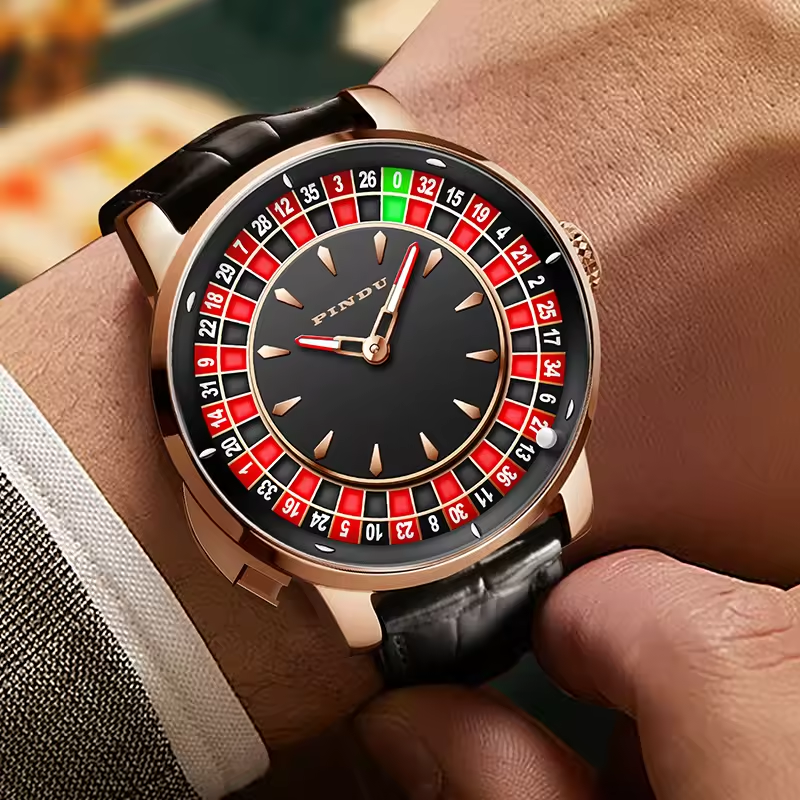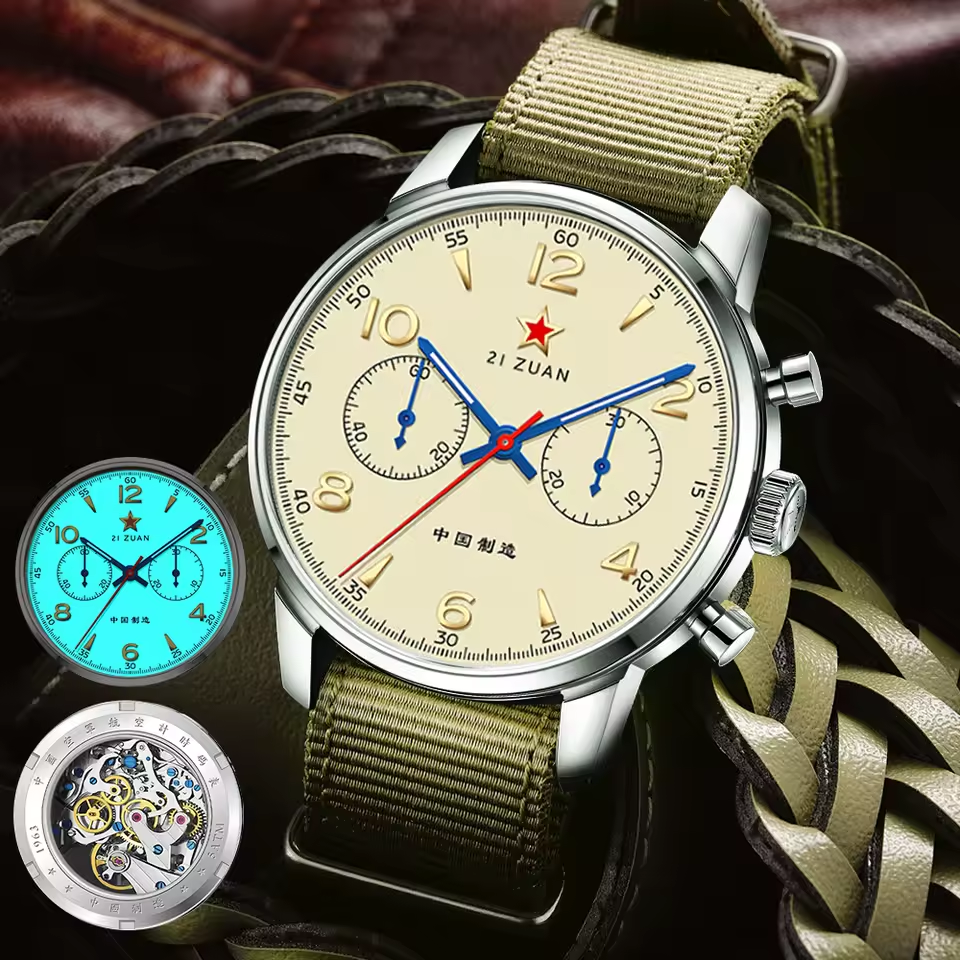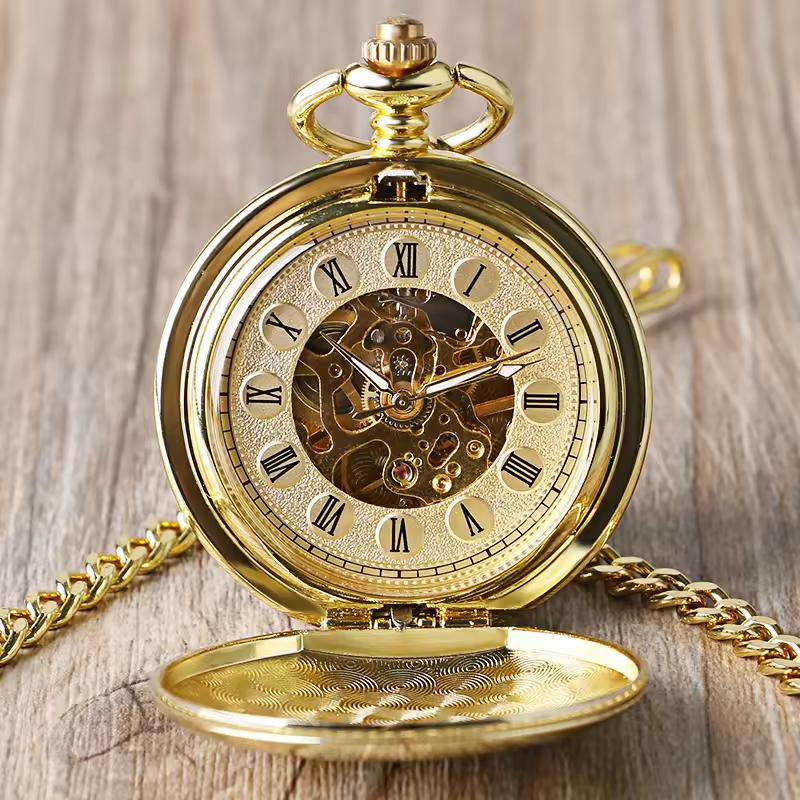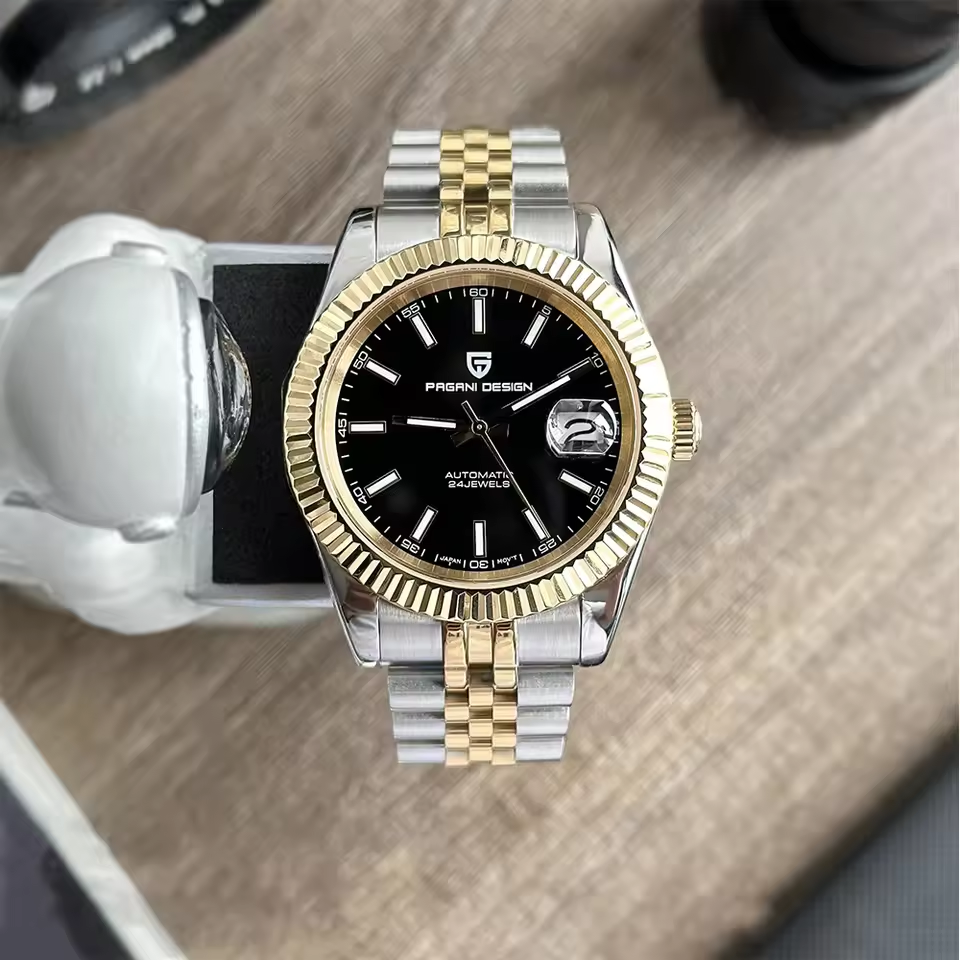The Allure of Mechanical Watches
In the world of horology, mechanical watches hold a special charm. Unlike their quartz counterparts, mechanical watches epitomize the traditional art of watchmaking. Here’s why they captivate enthusiasts and new collectors alike:
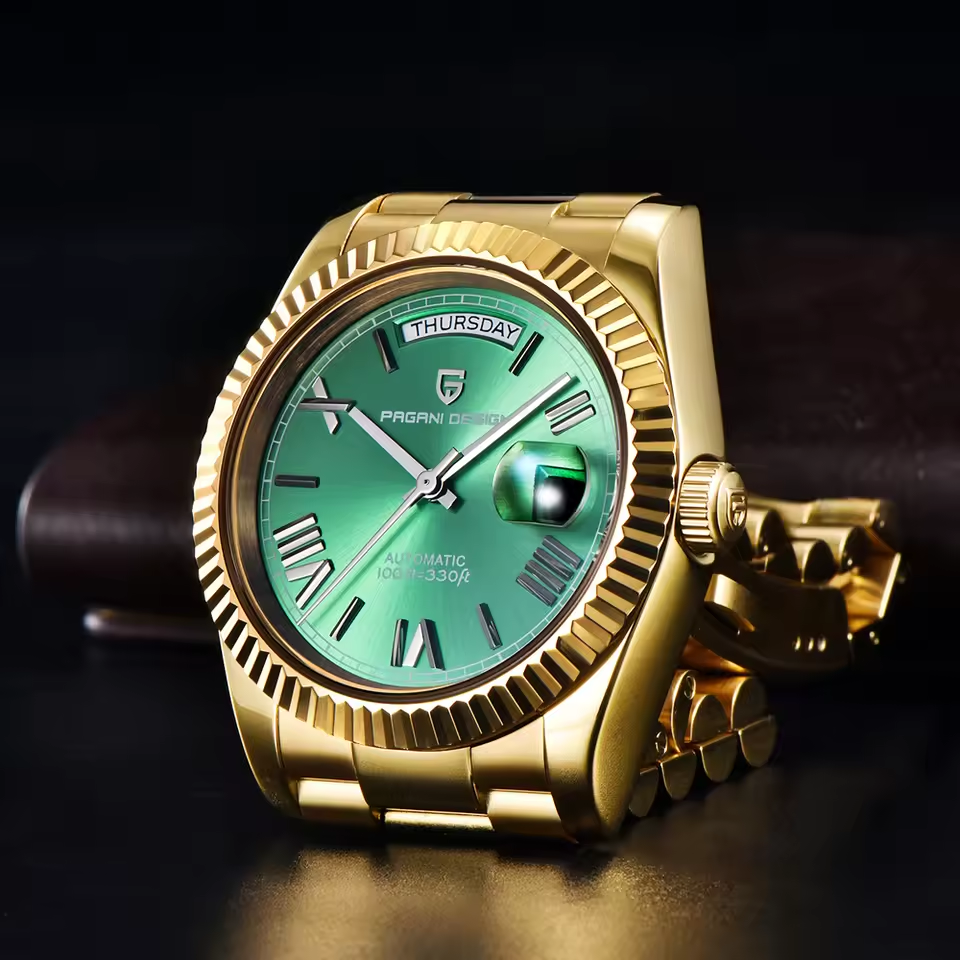
- Craftsmanship and Artistry: Each entry level mechanical watch is a showcase of intricate designs and engineering marvels. The visible moving parts and sophisticated mechanisms are a nod to human ingenuity.
- Tactile Experience: The act of winding a mechanical watch offers a tactile interaction with time. It’s a moment of connection between the wearer and their timepiece.
- Heritage and History: Mechanical watches have a rich history. Owning one is like wearing a piece of the past on your wrist. They remind us of an era when timepieces were the pinnacle of technology.
- Unique Characteristics: Every mechanical watch is unique. Over time, it develops a character and tells its own story. This personal relationship with the watch is something that wearers cherish.
- Longevity and Durability: With proper care, mechanical watches can last for decades. This longevity means they can be passed down as heirlooms, adding to their allure.
- Sense of Investment: Buying an entry level mechanical watch is often the first step into the world of collecting. It’s seen not just as a purchase, but as an investment in a hobby that can grow and evolve.
The appeal of mechanical watches goes beyond mere time telling. They are symbols of aesthetics, tradition, and a personal journey with time. For those starting out, choosing an entry level mechanical watch is an introduction to this enchanting world.
Key Considerations When Choosing Your First Mechanical Watch
Choosing your entry level mechanical watch is an exciting journey. But it’s important to take the right steps. Here are some factors to consider when selecting your first mechanical timepiece:
- Budget: Decide how much you want to spend. Entry level does not mean cheap. Quality varies with price.
- Style Preference: Do you want a dress watch, a sports watch, or something vintage? Match the watch to your personal style.
- Brand Reputation: Research brands within your budget. Trusted brands often mean better quality and after-sale services.
- Features: Think about what features matter to you. Date displays, water resistance, and power reserve indicators are some examples.
- Size and Fit: Comfort is key. But trendy large watches may not suit small wrists. Try before you buy.
- Movement Type: Understand the different types of mechanical movements. It affects precision and maintenance needs.
- Resale Value: If you plan to upgrade later, consider watches that hold value over time.
- Community and Reviews: Join watch forums. Read reviews. Other enthusiasts’ experiences are invaluable.
Each choice will pave the way for your personal watch collection journey. Start with what captures your heart and fits your lifestyle.
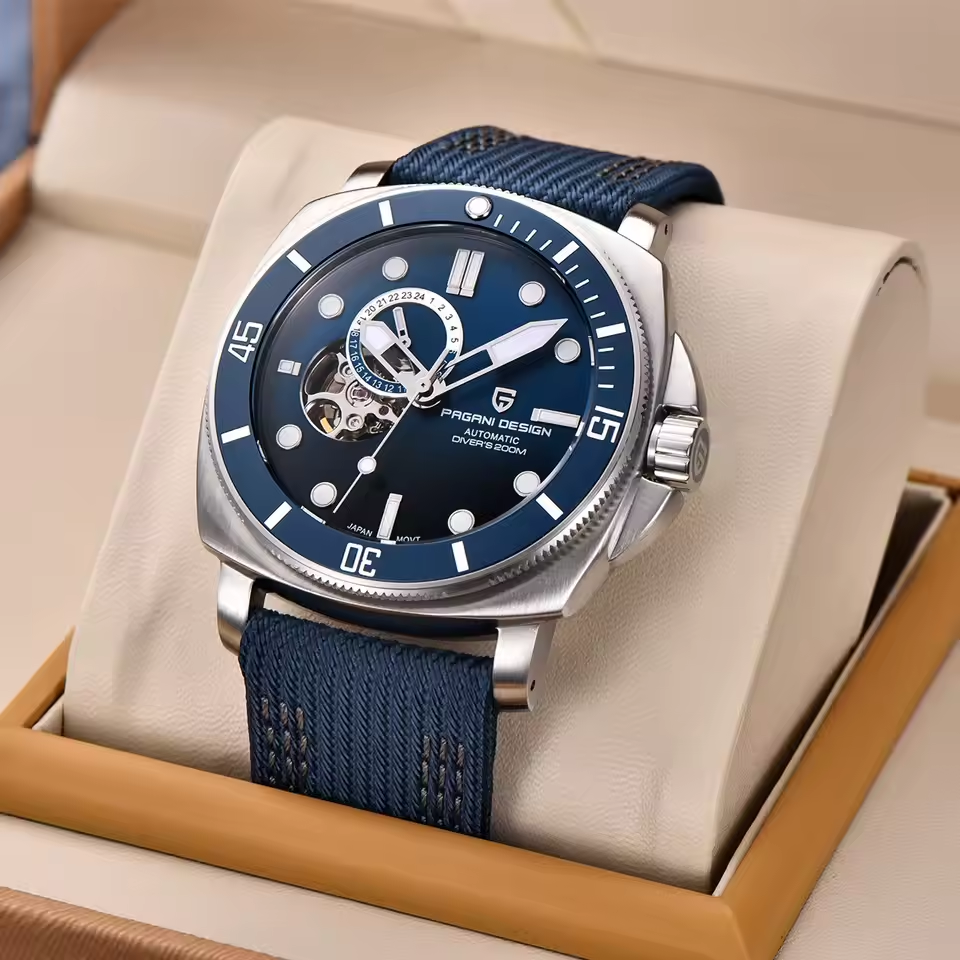 The Price Range of Entry-Level Mechanical Watches
The Price Range of Entry-Level Mechanical Watches
When starting your horology journey, knowing the price range for an entry level mechanical watch is key. Here’s what to expect financially:
- Budget-Friendly Options: You can find solid choices starting from $100 to $500. These often include reliable movements and classic designs.
- Mid-Range Quality: For $500 to $1,000, you’ll see improved craftsmanship and finer materials.
- Higher-End Entry Level: Watches ranging from $1,000 to $2,500 offer premium features, like sapphire crystals and superior movements. This is the high end of entry level.
- Over $2,500: While still considered entry level for some luxury brands, this price climbs beyond what most beginners might want to invest initially.
Decide on a budget that feels right for you. Remember, an entry level mechanical watch can be both a statement and a starter in your collection. Choose wisely and enjoy the journey.
Top Brands for Entry-Level Mechanical Watches
When stepping into the realm of mechanical watches, brand selection is crucial. Top brands offer the assurance of quality, reliability, and a good entry point into the hobby. Here are some reputable brands to consider for your first entry level mechanical watch:
- Seiko: Known for its affordability and reliability, Seiko offers a variety of watches. Their craftsmanship is respected worldwide.
- Orient: Orient is famous for producing self-winding and hand-wound mechanical watches that are budget-friendly. It’s a respected name in the watch community.
- Citizen: While Citizen is renowned for quartz, they also have mechanical options. These watches are known for their durability and technology.
- Tissot: A Swiss brand that provides an entry into Swiss-made craftsmanship. They offer elegant designs and precise movements.
- Hamilton: With a rich history, Hamilton is another Swiss brand that offers stylish and durable mechanical watches at a reasonable price.
- Timex: While traditionally focused on quartz, Timex has been lauded for their recent mechanical reissues. They balance cost and design well.
These brands have stood the test of time and provided generations with trustworthy timepieces. They are known for striking a balance between quality and affordability. Each brand has its unique selling points. Remember to pick a brand that not only fits your budget but also resonates with your style and watch-wearing habits. Investing in a entry level mechanical watch from a reputable brand is the first step to ensuring a lasting relationship with your timekeeping companion.
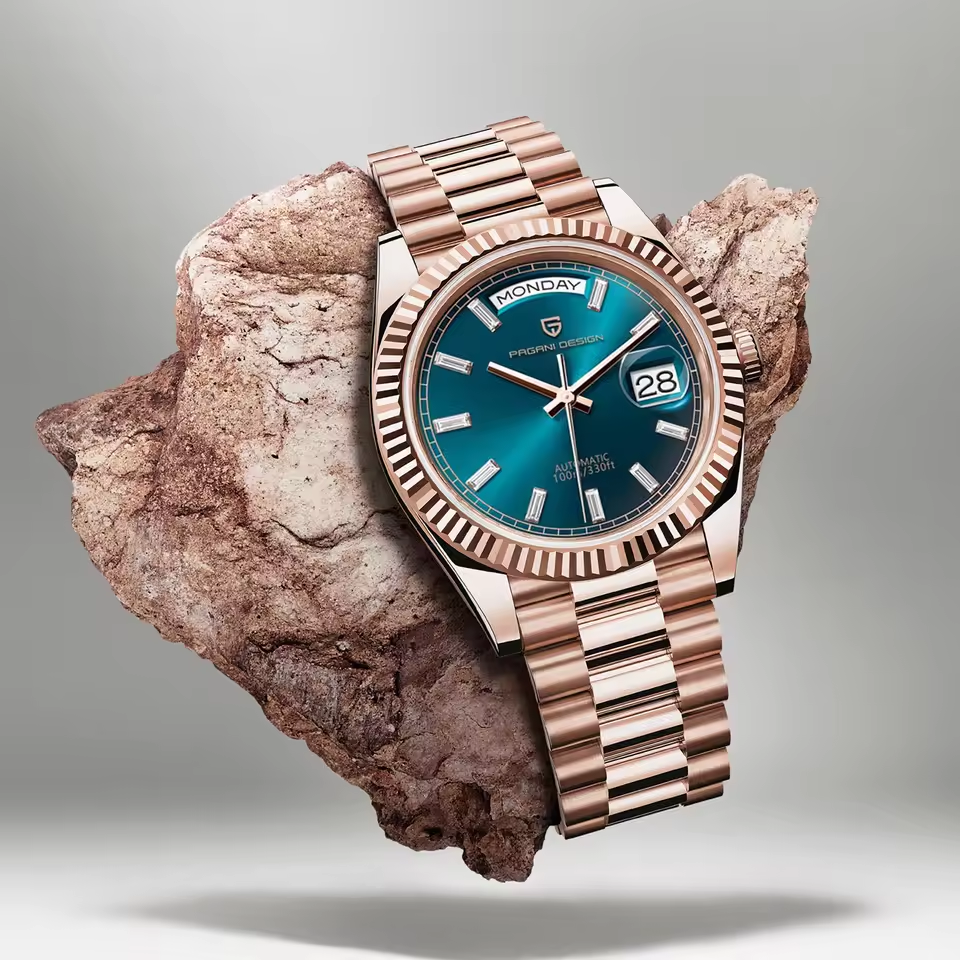 Mechanical Watch Movements Explained
Mechanical Watch Movements Explained
When diving into the world of mechanical timepieces, the movement is key. This is the heart of the watch. It powers the hands and drives the features. Let’s break down what you need to know about mechanical watch movements.
- Manual Movement: You wind it by hand. This turns the springs, which release energy slowly. It keeps the watch ticking. Consider this movement intimate. You connect with your watch daily.
- Automatic Movement: It winds itself as you move. A rotor spins from your wrist’s motion. This keeps the watch powered. It’s convenient. No daily winding needed.
- Caliber of Movements: ‘Caliber’ refers to the movement’s model and design. Different calibers have unique features. They affect performance.
- Jewels in Movements: Movements contain jewels. These reduce friction in moving parts. They keep the watch running smoothly.
- Accuracy: Mechanical movements may lose or gain a few seconds per day. Unlike quartz, they are not perfect in keeping time. But that adds to their charm.
- Maintenance: Mechanical movements need regular servicing. This keeps them in top condition. Expect to service yours every 3 to 5 years.
Understanding the movement in your entry level mechanical watch is fundamental. It defines the watch’s character and how you interact with it. Choose the movement that suits your lifestyle. Do you prefer the ritual of daily winding? Or do you value the convenience of an automatic? Your preference will guide you to the right choice.
The Importance of Watch Maintenance
Maintaining your entry level mechanical watch is vital to ensure its longevity and performance. Think of it as taking care of a valued possession that could one day become a family heirloom. Here are some reasons why watch maintenance should not be overlooked:
- Preserves Watch Accuracy: Regular service keeps the mechanism clean and lubricated, which is crucial for accurate timekeeping.
- Prevents Wear and Tear: Small parts inside a watch can wear out. Maintenance spots and fixes these issues early.
- Saves Money: Catching problems early on prevents expensive repairs later. It is more cost-effective to maintain than to fix.
- Protects Investment: Your timepiece is an investment. Taking good care of it maintains or even increases its value over time.
- Personal Enjoyment: A well-maintained watch feels better to wear, looks impressive and works like a charm, enhancing your enjoyment of it.
Here are a few maintenance tips for your entry level mechanical watch:
- Regular Winding: For manual watches, wind them at the same time each day. It keeps the movement steady.
- Avoid Moisture and Dust: Keep your watch dry and clean. Moisture and dust can damage the movement.
- Professional Servicing: Have your watch checked by a professional every 3 to 5 years. They can do a thorough inspection and cleaning.
- Careful Handling: Treat your watch with care. Avoid shocks and rough handling that can affect the movement’s functionality.
On top of these, always refer to the manufacturer’s guidelines for specific maintenance advice for your timepiece. By taking these steps, you ensure that your entry level mechanical watch not only tells time but tells a story for years to come.
Where to Buy Your First Mechanical Watch
Buying your first entry level mechanical watch is a thrilling experience, and it’s important to know where to shop to ensure a satisfying purchase. Here are the best places to consider when looking for your new timepiece:
- Authorized Dealers: Secure a genuine watch with a warranty. Authorized dealers have official ties with brands. They offer fresh collections and professional advice.
- Watch Specialty Stores: These shops provide a wide range of selections. Experts help you choose and answer watch-related queries.
- Online Retailers: Convenient and often with good deals. Look for reputable sites with positive reviews and return policies.
- Secondhand Markets: Ideal for vintage finds and deals. Check the watch’s condition and authenticity carefully.
- Watch Forums and Communities: Enthusiasts sell and trade watches here. Good for bargains and rare models. Always verify the seller’s reputation.
- Local Jewelers: Some jewelers carry a selection of mechanical watches. They offer personalized service and negotiations.
Before you buy, do your homework. Research the watch and the seller. Read reviews and ask questions. Ensure a purchase that brings you joy and a reliable entry level mechanical watch to start your collection.
Next Steps: Growing Your Watch Collection
Once you’ve acquired your first entry level mechanical watch, the real adventure begins. As you immerse yourself in the horology world, your collection will reflect personal growth and evolving taste. Here are steps to help you develop your collection in a meaningful way:
- Learn and Research: Dive deeper into watch history and mechanics. Knowledge enhances appreciation.
- Join Communities: Connect with other watch lovers. Forums are excellent for advice and learning.
- Set Goals: Define what you want from your collection. It could be themed, diversified, or investment-focused.
- Budget Wisely: Allocate funds for new pieces. Save for higher-quality watches without financial stress.
- Careful Selection: Choose each watch carefully. Think how it fits within your broader collection.
- Consider Resale Value: If you might sell later, pick watches that hold or appreciate in value.
- Maintenance Discipline: Service your watches regularly. It preserves their beauty and functionality.
- Wear and Enjoy: A collection is for personal enjoyment. Wear your watches proudly in rotation.
Watch collecting is more than accumulating timepieces. It’s about crafting a narrative of personal style and passion for the craft. Each watch is a chapter of your story. Let your collection develop naturally and joyfully as you travel through the landscape of timekeeping.
